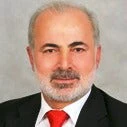
Photo: Rawan Da'as
The schools in which no one passed the exam account for 27 percent of all the public secondary schools in the country, which is a very high percentage. And when we consider the geographical distribution of these schools, we find that the problem is even more fundamental. For example, there are seven districts in which more than 50 percent of the schools had no students who passed the exam, while in the southern district of Shobak this applies to over 75 percent of the schools. Without going into the details, we find that these schools are concentrated in the rural and poor regions and provinces. This shows that the problem is fundamentally a developmental issue and not an educational one, as most of these regions have high rates of poverty and unemployment, in addition to the lack of equality between these provinces and the main provinces such as the capital. This problem has come to light because of the unprecedented interest shown by King Abdullah II in this regard.
This issue may be related to an important development that has occurred over the past two decades in the area of public education, which is the growth of the private sector in Jordan. The figures show that over 40 percent of students in Jordan are currently studying in private schools, which were quite rare in the early 1990s. The expansion of public schools started because of the problems facing public education, particularly the problem of overcrowding, in addition to the fact that the teaching of English in public schools has been below standard for many years. This encouraged middle class parents to send their children to private schools in order to ensure that they receive a good education. Of course, all private schools are not of the same quality, but there are a large number of international schools with high standards, and gradually private schools have became the place of choice for the middle class, while government schools are attended mostly by children of the poorer classes and non-Jordanian poor people, and as a result, official attention to public education has been reduced.
Another issue that has been raised with regard to public education is concerned with school curricula, which have been the focus of attention in particular since the appearance of the so-called Islamic State and other extremist organizations that rely on religion to justify their actions. This has led to a focus on curricula, particularly the place of religion in school curricula, which can be found not only in religious books but also in curricula for the Arabic language, history, and national education, which has caused some to claim that these curricula lead to extremism. These issues have brought to the forefront the need for a fundamental reform of the public education system in Jordan.
The highest levels of the government are interested in reform of public education, but there are forces within society and in the Ministry of Education that oppose change, particularly in school curricula. The Ministry of Education organized an educational conference to discuss the dimensions of necessary reform, but it is unlikely that these efforts will be successful, owing to the lack of a comprehensive vision concerning the content and modality of the reform, and current efforts are focused more on the appearances of the crisis rather than its essence.
Educational reform in Jordan has become an urgent developmental and humanitarian need, and the government must develop a vision that reflects the goals, values, and future aspirations of the country and its people, and provide the necessary funding. The reform must not be limited to curricula, but must include teachers and all the practical aspects of education as well. It is time to restore public education.


Join the Conversation